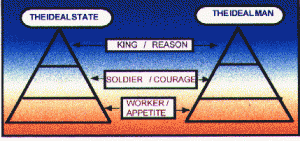It has been a rough ten days at our house. Not because Jeanne had knee replacement surgery a week ago Tuesday and has been rehabbing, first in the hospital then in a short-term facility, until returning home yesterday afternoon. Not because I have been worried about her, about the piles of grading that never seem to get any smaller, and about overcoming my visceral dislike of health-care facilities as I visit her every day.  No, it’s been a rough ten days because the girls at home, our three four-legged daughters, have been missing Mom more and more as their suspicion that Dad is a sub-par canine care provider is confirmed more fully as each day passes. Why doesn’t Dad do things—feed us, entertain us, talk to us, sit on the couch with all three of us, give us treats because we are breathing properly—in the manner to which we have become accustomed? What the hell is Dad’s purpose, anyways?
No, it’s been a rough ten days because the girls at home, our three four-legged daughters, have been missing Mom more and more as their suspicion that Dad is a sub-par canine care provider is confirmed more fully as each day passes. Why doesn’t Dad do things—feed us, entertain us, talk to us, sit on the couch with all three of us, give us treats because we are breathing properly—in the manner to which we have become accustomed? What the hell is Dad’s purpose, anyways?
Our three daughters—Frieda, Winnie, and Bean—have shared the space a foot or two above the floor with each other in our house for the past six years. Frieda came first, nine years ago, with Bean and Winnie joining the pack about eight months apart in 2008-09. And it is definitely a pack.  Frieda, a late-middle-aged dachshund with perhaps a bit of chihuahua thrown in (don’t tell her we noticed) is clearly the alpha dog—indeed she is the alpha living creature in the house, trumping not only her sisters but her parents in both will and importance when necessary. Bean (Boston Terrier) and Winnie (another dachshund—pure bred) are still trying to figure out who is second in the pack; after six years under the same roof they still fight over who gets to sit closest to Mom and who gets to drag the most raggedy toys around.
Frieda, a late-middle-aged dachshund with perhaps a bit of chihuahua thrown in (don’t tell her we noticed) is clearly the alpha dog—indeed she is the alpha living creature in the house, trumping not only her sisters but her parents in both will and importance when necessary. Bean (Boston Terrier) and Winnie (another dachshund—pure bred) are still trying to figure out who is second in the pack; after six years under the same roof they still fight over who gets to sit closest to Mom and who gets to drag the most raggedy toys around.  Winnie and Bean are both rescue dogs, with all the personality peculiarities and peccadilloes that accompany such a start in life. Bean’s need for serious therapy is so great that she will get her own blog post soon. This one’s about Frieda and Winnie—the “Sausage Sisters,” as my oldest son has named them—and how my years of observing and loving them gave me unexpected insights into Plato’s Republic.
Winnie and Bean are both rescue dogs, with all the personality peculiarities and peccadilloes that accompany such a start in life. Bean’s need for serious therapy is so great that she will get her own blog post soon. This one’s about Frieda and Winnie—the “Sausage Sisters,” as my oldest son has named them—and how my years of observing and loving them gave me unexpected insights into Plato’s Republic.
When I unexpectedly took on a Philosophy of the Human Person course as an overload just a few weeks before the beginning of the current semester because of a colleague’s unexpected illness, I decided that this was my opportunity to do something I’ve wanted to do for many years—teach an entire introductory philosophy class with no text other than Plato’s Republic.  Now, a few days from the end of the semester, twenty-five students and I have pulled it off—our text for today’s penultimate class is the final ten pages of the dialogue, and my students will join the ranks of the .01% of human beings alive who have read this greatest of all philosophical works in the Western tradition from cover to cover. The overall question of Republic is What is justice?—a question Plato investigates from various angles, including the comparison of justice in various communities as large projections of justice in similarly structured individuals. Over the past few weeks, as we compared Plato’s favored form of governance—aristocracy (“rule of the best”)—with his next-to-least favorite—democracy (“rule of the many”)—while also contrasting individuals with aristocratic and democratic souls, I thought “I know these people. They live in my house.” And I brought my illustrative tale of two dachshunds to class.
Now, a few days from the end of the semester, twenty-five students and I have pulled it off—our text for today’s penultimate class is the final ten pages of the dialogue, and my students will join the ranks of the .01% of human beings alive who have read this greatest of all philosophical works in the Western tradition from cover to cover. The overall question of Republic is What is justice?—a question Plato investigates from various angles, including the comparison of justice in various communities as large projections of justice in similarly structured individuals. Over the past few weeks, as we compared Plato’s favored form of governance—aristocracy (“rule of the best”)—with his next-to-least favorite—democracy (“rule of the many”)—while also contrasting individuals with aristocratic and democratic souls, I thought “I know these people. They live in my house.” And I brought my illustrative tale of two dachshunds to class.
Although it takes three hundred pages for Plato to fully answer the What is justice? question, he provides his definition of justice just a little more than a third of the way through the dialogue. Justice in a community arises when the various classes of rulers, soldiers, artisans and providers play their differing assigned roles effectively without striving to be anything other than what they are.  The hallmark of justice, in other words, is harmony between the factions and each group knowing its place in the pecking order. Social classes in a less-than-just society would be at odds and in competitive conflict with each other. Similarly in the just and “best” (aristos) individual, the various parts of the soul are in harmony, ruled by reason, energized by directed passion, and served appropriately by the satisfaction of the appetites. The person with the just, aristocratic soul, in other words, has her priorities straight, in proper ranking, and does not stray from them.
The hallmark of justice, in other words, is harmony between the factions and each group knowing its place in the pecking order. Social classes in a less-than-just society would be at odds and in competitive conflict with each other. Similarly in the just and “best” (aristos) individual, the various parts of the soul are in harmony, ruled by reason, energized by directed passion, and served appropriately by the satisfaction of the appetites. The person with the just, aristocratic soul, in other words, has her priorities straight, in proper ranking, and does not stray from them.
Frieda is a case in point. “Herself,” as Jeanne and I often refer to her, has three  priorities—food, sleep, and affection. In that order. And she does not waver from them. Frieda is obsessed with food—there are apocryphal stories of her eating a whole pie when she was a young thing—and she will materialize immediately in the kitchen from anywhere in the house if she hears or intuits a promising food-related vibration. She eats Bean’s and Winnie’s food if she gets the chance, often before her own, just because she’s the alpha dog and she can. She gets a heart pill once every morning, an event starred on her daily calendar because she receives it embedded in a piece of human food (hot dog, banana, anything handy that’s edible).
priorities—food, sleep, and affection. In that order. And she does not waver from them. Frieda is obsessed with food—there are apocryphal stories of her eating a whole pie when she was a young thing—and she will materialize immediately in the kitchen from anywhere in the house if she hears or intuits a promising food-related vibration. She eats Bean’s and Winnie’s food if she gets the chance, often before her own, just because she’s the alpha dog and she can. She gets a heart pill once every morning, an event starred on her daily calendar because she receives it embedded in a piece of human food (hot dog, banana, anything handy that’s edible).  Frieda sleeps at the top of the bed between Jeanne’s and my heads, a location that has been “hers” since time immemorial. And her affection requirements are specific and unwavering. She loves to be rubbed under her chin, often leaving her snout pointing at the sky after such a chin rub if it hasn’t lasted long enough, frozen in position until the person doing the rubbing picks up the cue and continues. She has specific locations that she must occupy when sharing a piece of furniture with a human—on my right side in the recliner (even though I prefer her on my left) and behind Jeanne on the couch (although Jeanne would prefer her to be anywhere but behind her). Frieda has shown interest in only one toy in her life, the “piggy” that dissolved from overuse some time ago—playing with toys or playing at all, for that matter, is beneath her.
Frieda sleeps at the top of the bed between Jeanne’s and my heads, a location that has been “hers” since time immemorial. And her affection requirements are specific and unwavering. She loves to be rubbed under her chin, often leaving her snout pointing at the sky after such a chin rub if it hasn’t lasted long enough, frozen in position until the person doing the rubbing picks up the cue and continues. She has specific locations that she must occupy when sharing a piece of furniture with a human—on my right side in the recliner (even though I prefer her on my left) and behind Jeanne on the couch (although Jeanne would prefer her to be anywhere but behind her). Frieda has shown interest in only one toy in her life, the “piggy” that dissolved from overuse some time ago—playing with toys or playing at all, for that matter, is beneath her.  She is the alpha dog, the queen of all she surveys, and she has her priorities straight. The embodiment of Plato’s aristocratic soul.
She is the alpha dog, the queen of all she surveys, and she has her priorities straight. The embodiment of Plato’s aristocratic soul.
Plato’s regard for and opinion of both democracy and those with democratic souls is, shall we say, rather low. We love democracy for its freedom, for its theoretical commitment to egalitarianism and the equal value of all human beings, its openness to variety and new ideas, and for its facilitation of choice. And these are all reasons that Plato rates democracy toward the bottom of his types of government.  His primary critique is that democracy is selling itself and others a lie by pretending that everyone is the same and that all human concerns are equally valuable, when deep down we know that none of this is true. In the soul of a democratic person, all things are equally valuable—the democratic person flits from interest to interest, from idea to appetite, from today’s passion to tomorrow’s obsession, while lacking the ability to prioritize, to rank, or to place the details of her or his life in proper order. It’s interesting, it’s attractive, it’s chaotic, and it’s a recipe for disaster. Democracy is no way to run a society or a life.
His primary critique is that democracy is selling itself and others a lie by pretending that everyone is the same and that all human concerns are equally valuable, when deep down we know that none of this is true. In the soul of a democratic person, all things are equally valuable—the democratic person flits from interest to interest, from idea to appetite, from today’s passion to tomorrow’s obsession, while lacking the ability to prioritize, to rank, or to place the details of her or his life in proper order. It’s interesting, it’s attractive, it’s chaotic, and it’s a recipe for disaster. Democracy is no way to run a society or a life.
 Consider Winnie, for instance. Winnie is cute, loveable, a classically marked black-and-tan dachshund who loves affection and biting strangers on the foot or ankle for no apparent reason. Winnie loves to eat, but also loves toys with squeakers in them, following Mom around about a foot behind her heels, burrowing under blankets, barking at nothing, and endless affection. Just like the democratic person, Winnie has many interests and obsessions. And just as the democratic person, they all are equally important.
Consider Winnie, for instance. Winnie is cute, loveable, a classically marked black-and-tan dachshund who loves affection and biting strangers on the foot or ankle for no apparent reason. Winnie loves to eat, but also loves toys with squeakers in them, following Mom around about a foot behind her heels, burrowing under blankets, barking at nothing, and endless affection. Just like the democratic person, Winnie has many interests and obsessions. And just as the democratic person, they all are equally important.  Winnie has a difficult time walking a straight line because her attention can so easily be attracted by the slightest thing. We sometimes describe her as “skittish,” but she’s really just a democratic soul incapable of prioritizing. Food, toys, attention, barking, simultaneous fear of and aggression toward strangers (and Dad walking in the back door after having been gone for thirty seconds throwing out the trash) occasionally send Winnie into sensory overload, marked by running around the house frantically squeaking a raggedy toy until she collapses flat on her back with all four legs straight up.
Winnie has a difficult time walking a straight line because her attention can so easily be attracted by the slightest thing. We sometimes describe her as “skittish,” but she’s really just a democratic soul incapable of prioritizing. Food, toys, attention, barking, simultaneous fear of and aggression toward strangers (and Dad walking in the back door after having been gone for thirty seconds throwing out the trash) occasionally send Winnie into sensory overload, marked by running around the house frantically squeaking a raggedy toy until she collapses flat on her back with all four legs straight up. It is amusing to watch, just as it is amusing to observe on Facebook the inability of many people to prioritize in terms of importance between sharing a picture of their latest meal and participating in a discussion about global warming. Democratic souls in action.
It is amusing to watch, just as it is amusing to observe on Facebook the inability of many people to prioritize in terms of importance between sharing a picture of their latest meal and participating in a discussion about global warming. Democratic souls in action.
Some years ago books like “All I Really Need to Know I Learned in Kindergarten” were all the rage. “All I Really Need to Know about Plato I Learned from My Dachshunds” is not quite as catchy, but I’ll bet it would attract philosophy majors. Now if the Sausage Sisters could just help me with Hegel or Heidegger.











